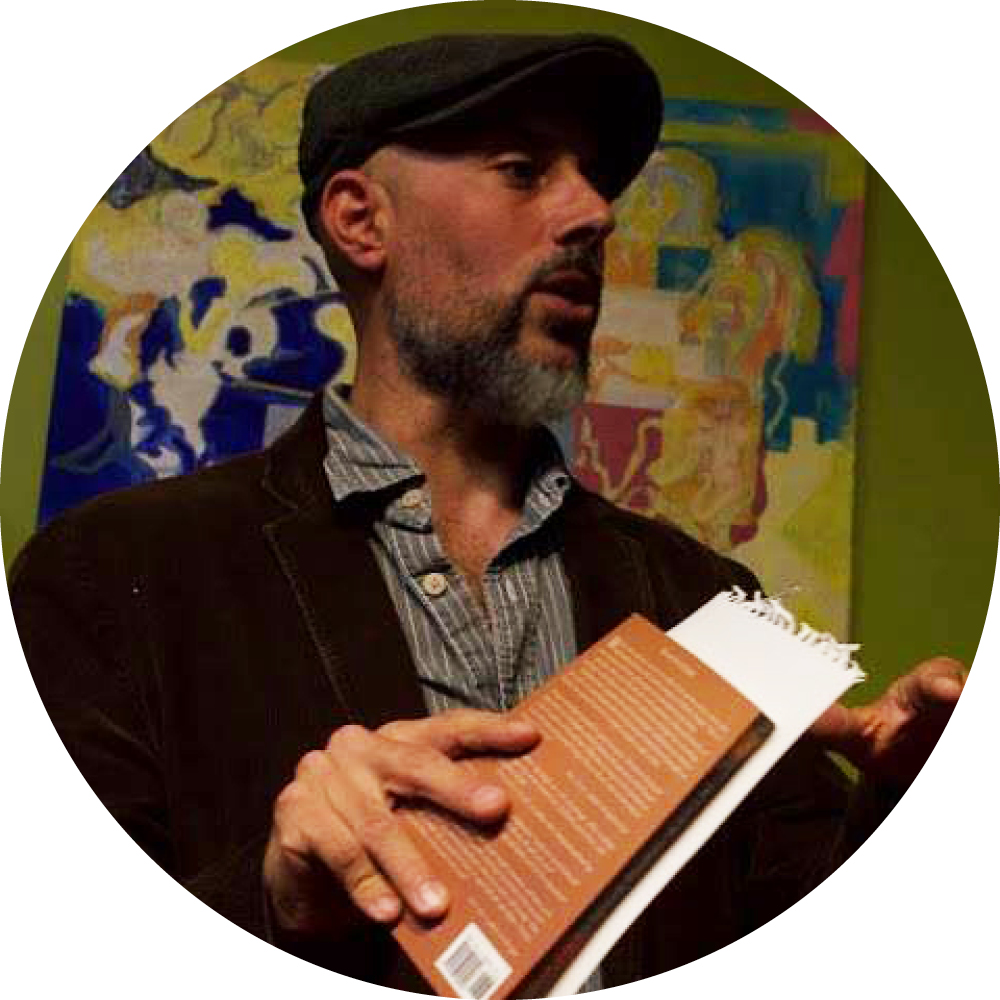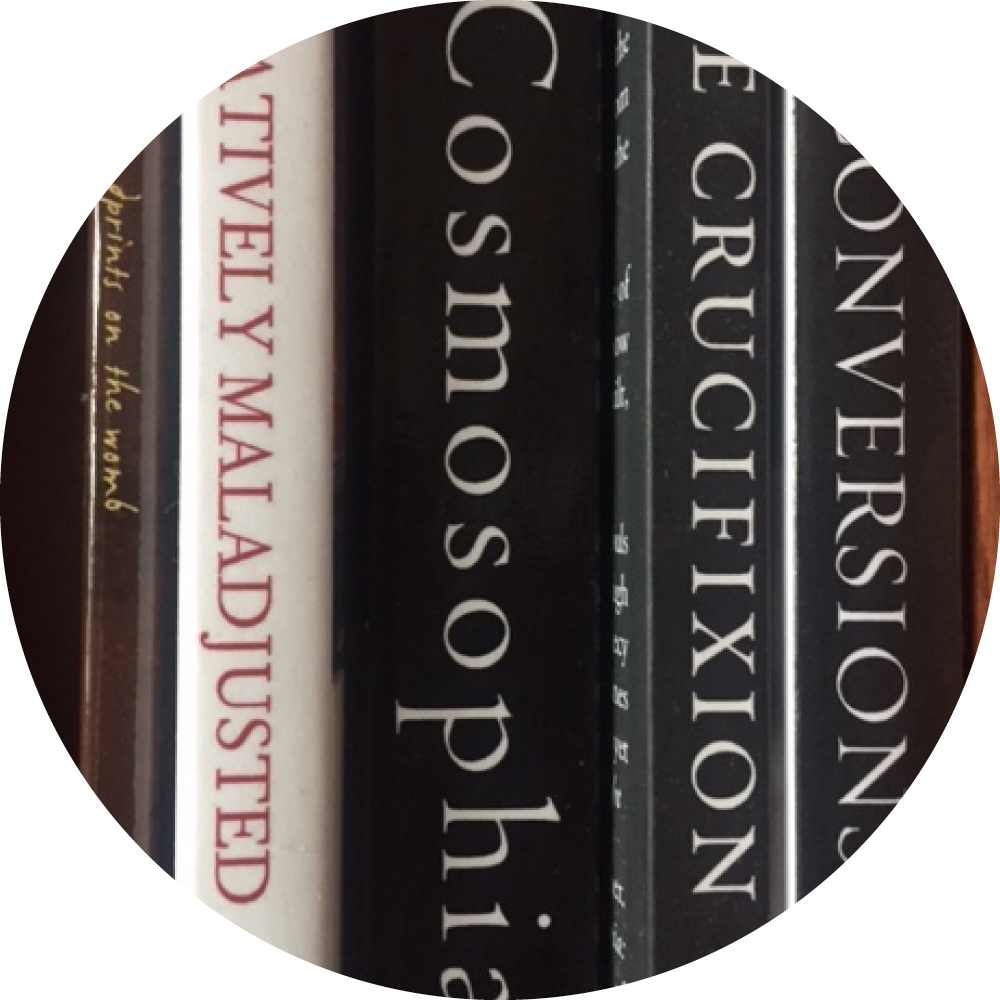Tornado at
Nomad’s End
By Eric D. Lehman
Eating dinner at my parents’ Newington condominium, we watched a storm batter the windows and shrugged. It was intense, with frequent lightning, but it went through quickly. However, before heading home, I checked my phone and saw that a fellow historical society member had shared the news that the 1792 Jonathan Dickerman House in Hamden was damaged, the 1810 Talmadge cider barn destroyed, and in fact the entire northern part of the town devastated by a rare Connecticut tornado. My wife Amy and I jumped in the car and rushed home along the Merritt Parkway, which was covered in debris. In Hamden, I tried to weave back to our house past blinking or darkened traffic lights, leaves everywhere, branches and trees tangled in wires, blocking roads, crushing houses. At the bottom of the long hill to our house, we saw an orange cone. My heart sank. We proceeded cautiously up the road, and all the houses were dark. At the top of the hill, just past our neighbor’s driveway, a line of tape blocked the way, and beyond it, an enormous fallen tree.
In a lifetime of worry I have rarely felt more dread. The power line was down and wrapped up in the tree. We could not proceed, and in the pitch dark, I had no idea what other approaches would be safe. It was only a few hundred yards through the forest, but our car flashlights were pathetic – we were completely unprepared in short-sleeved shirts and sandals. I cursed and turned the car around, making our way to Amy’s brother’s house a few miles away. It was also difficult to reach and out of power, with several trees down. But the damage in that area of town was not as bad, since they were further away from the main thrust of the wind. Amy’s sister-in-law let us in and our niece greeted us sleepily. They went back to bed, since there was little else to do and they had to get up at 6 a.m.
We tried to fall asleep in their small, hot guest room, but I might have only drifted off for a half hour or so. Amy might have gotten an hour. All night, I created various scenarios for the deaths of my two cats – my furry children – and the destruction of our house, our beloved Nomad’s End. My brain was on fire. At 5 a.m., we were certainly both awake, just before dawn, and left before the others awoke, going to a Krauser’s to get breakfast sandwiches, coffee, and Gatorade as a red sunrise peeped over the hills. Nothing else was open – I tried to go to Walmart to get Amy socks and a long-sleeved shirt, but it was silent and dark.
A road to the east of our house was clear, though two houses along it had been smashed by huge trees. We parked by the entrance to a hiking trail that stretched for a half mile to a gravel road north of our house. We parked, put on gloves that I had in the trunk, and hiked up the hill. The trail was clearer than many of the roads, though there were several trees down and debris throughout the forest. A huge fallen beech cleared an enormous hole in the canopy, and the leafy branches of other blowdowns prevented us from seeing more than glimpses of the house to the west. Amy picked her way across a network of swiftly-running streams in wet sandaled feet.
We stuck to the brown, leafy trail and finally came out on the gravel road. Turning left we crossed the stream again, using a large fallen branch as a pole, and nearly ran toward the mailbox. A huge downed tulip tree further up the road pulled on the power line, like a giant’s jacket on a small clothesline. Many others were bent or moved in strange ways; some had been literally shifted in the soil and I immediately worried that they could still come down. But it looked like the house was untouched by the larger trees.
We dragged several large branches from the driveway, pointed out bent or cracked trees to each other, and after fumbling with the keyhole for what seemed like ages, pushed past the blinking alarm lights into the silent house. No windows broken, no water in the basement, and most importantly, no damage to our two scared and hungry but otherwise safe cats. We fed and petted them, inspected every corner, prepared all the flashlights, and after some biscuits and ginger ale, fell asleep for a few hours.
We had been out of power before, once for a week in October, and twice for several days in the dead of winter, so it was not that great of a surprise or inconvenience. But the news that we received after we hiked out and drove into town was shocking – dozens of houses just a half mile to the north were uninhabitable; the local park, Sleeping Giant, was devastated; and thousands upon thousands of trees had fallen or cracked in our town and the next. We ate desultory meals at the local diner and charged our phones at the library. I anticipated days, maybe weeks, without power. In the pitch darkness we made salads with apples and cheese, and fell asleep at strange times of day.
Three days later, the power company cut the huge tulip tree blocking our road, and I hiked out to the car and drove it back. We were exhausted from all this hiking in and out, as well as by the small struggles of living with no power. A cold shower did not help. I had missed an important meeting at work that morning, but in the evening Amy had a poetry reading at Byrd’s Books, an hour away by car. After a much-needed stop at the chiropractor and another for dinner, we drove through the Connecticut hinterlands, arriving early and chatting with owners Alice and Steve before others showed up. I bought Karl Ove Knausgaard’s Spring and a few other books and then settled in for the poets.
Amy was first, standing up at the small lectern in a pink, white, and black multi-patterned shirt, with her unwashed hair pulled back in a bun. She read “Guided Tour,” a poem about leading a blind man through the now-damaged Jonathan Dickerman house. She read “Ravens of West Rock,” about the nearby forests. And then, she recited a poem about our cat Django, beautiful and unexpected, with shifting voice. I had not read it before, and hearing it first in a public place was sad and shocking.
Knowing and Not Knowing
The cat steps down the basement stairs
with the purpose of one looking for the last buoy
before losing the horizon in a sea storm
and cries something between request and apology
as if the cold cement floor would swallow him
and I am his only hope.
I know, I mutter.
He finds my shoes and corrals his small cat self
between legs and looks up with squinted eyes
then with another plea, he collapses
puppet-like to the floor, belly-up
and certain that reassurances will follow.
I bend to pet him. I know, I whisper
closer now to his stretching, the quilt of his fur
opening around my fingers, enough for me
to count single black hairs
patterned through white. I know. I know.
He purrs but I know these pauses
are not for comfort alone but for contrition
because I doubt my knowing
and mistrust that words between beings
can be understood as much as silence
and I regret the invented etymology
that feels most secure against uncertainty.
I know, I know. Your belly is so soft.
I know, I know. The house will hold itself up;
it will protect us. I know, I know. This floor
is not yet the bottom of it all.
She had written it months earlier, but it was an appropriate poem for our recent near disaster. “I know, I know” she cooed to him, to us, her voice still cracking from the paralyzed vocal cord she has suffered these last six months. Three other poets read after her, but my back ached, and I struggled to keep my exhausted eyes open. I drank a cup of coffee, ruminating on the terrible and beautiful blend of literature and experience.
We returned two hours later, down a lamp-lit street to a house bright with restored power, and Django waiting for us in the window.
“We were very lucky,” I told her.
“I know,” she said. “I know.
About The Author
Eric D. Lehman
Eric D. Lehman is the author or editor of seventeen books, including New England at 400, The Quotable New Englander, A History of Connecticut Food, and Afoot in Connecticut: Journeys in Natural History, nominated for the Pushcart Prize. His biography of Charles Stratton, Becoming Tom Thumb, won the Henry Russell Hitchcock Award from the Victorian Society of America, and was chosen as one of the American Library Association’s outstanding university press books of the year. His revolutionary history Homegrown Terror: Benedict Arnold and the Burning of New London was a finalist in two categories of the Next Gen Indie Book Awards, and was used in a question on Jeopardy. And his novella, Shadows of Paris, was the Novella of the Year from the Next Gen Indie Book Awards, a Silver Medal for Romance from the Foreword Review Indie Book Awards, and a finalist for the Connecticut Book Award.
Re-sources
Re-Imagining Education

Empowering educators to take a deeper look at the stories told in our schools and to re-imagine them in transformative and
nurturing learning spaces.
Learning Opportunities

Classes, workshops, and lectures that help to empower people to re-imagine who they are and their place in the world.
Get Involved

Help the Chicago Wisdom Project realize its mission to re-imagine education through holistic programming that transforms individual, community and world through creative expression.
